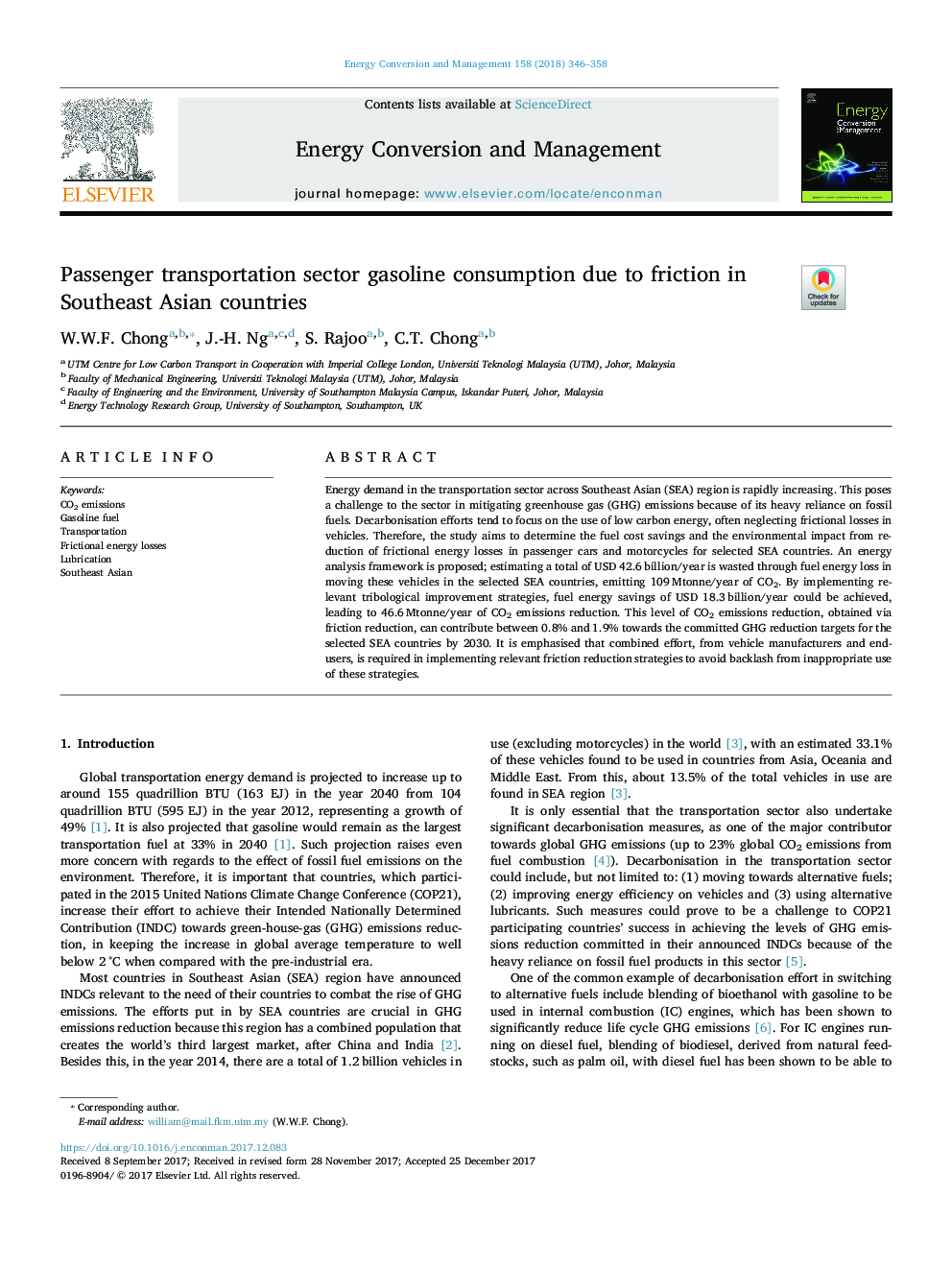| Article ID | Journal | Published Year | Pages | File Type |
|---|---|---|---|---|
| 7159153 | Energy Conversion and Management | 2018 | 13 Pages |
Abstract
Energy demand in the transportation sector across Southeast Asian (SEA) region is rapidly increasing. This poses a challenge to the sector in mitigating greenhouse gas (GHG) emissions because of its heavy reliance on fossil fuels. Decarbonisation efforts tend to focus on the use of low carbon energy, often neglecting frictional losses in vehicles. Therefore, the study aims to determine the fuel cost savings and the environmental impact from reduction of frictional energy losses in passenger cars and motorcycles for selected SEA countries. An energy analysis framework is proposed; estimating a total of USD 42.6â¯billion/year is wasted through fuel energy loss in moving these vehicles in the selected SEA countries, emitting 109â¯Mtonne/year of CO2. By implementing relevant tribological improvement strategies, fuel energy savings of USD 18.3â¯billion/year could be achieved, leading to 46.6â¯Mtonne/year of CO2 emissions reduction. This level of CO2 emissions reduction, obtained via friction reduction, can contribute between 0.8% and 1.9% towards the committed GHG reduction targets for the selected SEA countries by 2030. It is emphasised that combined effort, from vehicle manufacturers and end-users, is required in implementing relevant friction reduction strategies to avoid backlash from inappropriate use of these strategies.
Related Topics
Physical Sciences and Engineering
Energy
Energy (General)
Authors
W.W.F. Chong, J.-H. Ng, S. Rajoo, C.T. Chong,
